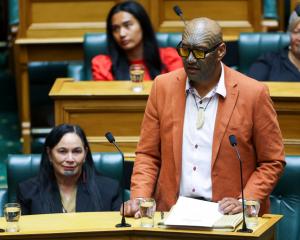During the past two or three years, as many as 20 million hectares of African land, an area equivalent to all the arable farming land in France and worth about $US20 billion-$US30 billion, have been acquired by countries such as Saudi Arabia, Kuwait and China.
These vast tracts have been either bought or leased to grow staple crops, or biofuels, which are then repatriated, says a 2009 Economist magazine article.
Similarly, a report co-produced last year by the International Fund for Agricultural Development, the United Nations' Food and Agriculture Organisation (FAO), and a London-based think-tank, the International Institute for Environment and Development, noted the purchase of arable but fallow farmland was being driven primarily by food security concerns.
It identified several countries besides China whose companies were involved in the "land grab": they included India, South Korea, America and several oil-rich, food-poor Arab nations.
It is partly against this background that attempts to buy up large parcels of New Zealand land should be considered.
The latest such move came to light on Wednesday when it was reported that a company, Southern Pastures, registered in Auckland, is seeking $500 million from local and offshore investors either to buy outright or controlling shares in farming concerns thoughout the southern hemisphere, but with a bias towards New Zealand.
An agricultural businessman spoken to by the Otago Daily Times said he was aware of 10 similar ventures.
This followed news that Chinese investors were seeking a stake in New Zealand dairying.
Natural Dairy (NZ) Holdings Ltd, a Hong Kong-based mining company previously known as the China Jin Hui Mining Corporation, is attempting to acquire not only farms but to build a processing plant for milk powder and infant formula.
The targeted land, believed to be worth just over $200 million, belongs to the troubled Crafar family farms based in Reporoa in the Bay of Plenty and currently in receivership.
The sale, however, is by no means a foregone conclusion because the would-be purchase has not been cleared by the Overseas Investment Office.
These revelations come in the wake of a collapsed deal whereby an Auckland hapu had sought to purchase 28 Southland farms with financial backing from Dubai.
The arrangement, which reportedly revolved round a 99-year contract to supply food to Dubai interests, fell over through a failure to meet certain deadlines - including those of the OIC which said that the sale came under its jurisdiction, a notion disputed by the land agent promoting the transaction.
All these events indicate there is serious overseas interest in acquiring New Zealand farmland, and some confusion in the rules and regulations surrounding the process.
There are, however, further questions to be raised in relation to such schemes, notably, what impact are they likely to have on the New Zealand industry and, how, if at all, the country will benefit? Critics assert the sale of productive New Zealand farm land to overseas interests, whoever they might be, is akin, once again, to selling off the family silver: short-term gain for long-term pain.
Are New Zealand farmers and farm workers to become pawns in a new world agricultural order governed by overseas corporations which while making an initial investment in land and plant then take produce and profit offshore in perpetuity? There is some validity in such concerns, but it has to be asked how they square with the brave new tariff-less free-trade world in which the modern New Zealander exists and does business.
How also does it relate to the more general patterns of ownership - say, of publicly-listed "New Zealand" companies? Or of the daily operations of dairy giant Fonterra, which is busily investing in, and building dairy herds in, China? What of New Zealand farming interests doing likewise in Argentina? Amid the confusion, there are certainties: demand for food and the land on which to produce it will rise inexorably.
FAO's How to Feed the World 2050 conference last year concluded that the demand for cereals would grow from 2.1 billion tonnes today to three billion tonnes by 2050; likewise, meat production would need to almost double - from 250 million tonnes to 470 million tonnes.
Demand for dairy products will rise similarly in scale.
As Massey University professor of pastoral agriculture Jacqueline Rowarth put it, "Food security is the biggest issue we're facing, and people have not got to grips with it yet".
Leadership is required, and care needed, to devise policy on how New Zealand will play its part in the food supply chain over the next several decades.
On the one hand, the country requires inward investment to develop further aspects of food production infrastructure; on the other, once the land is gone, it is gone forever.
Measurable gains from such sales will need to be demonstrably substantial and long-lasting before they can be permitted.












